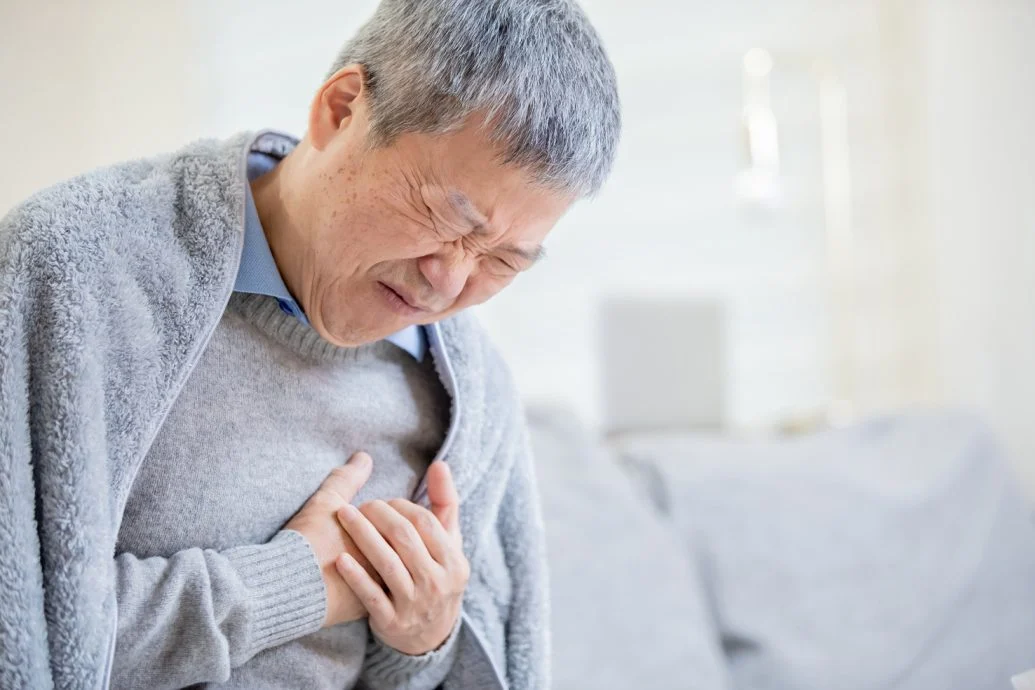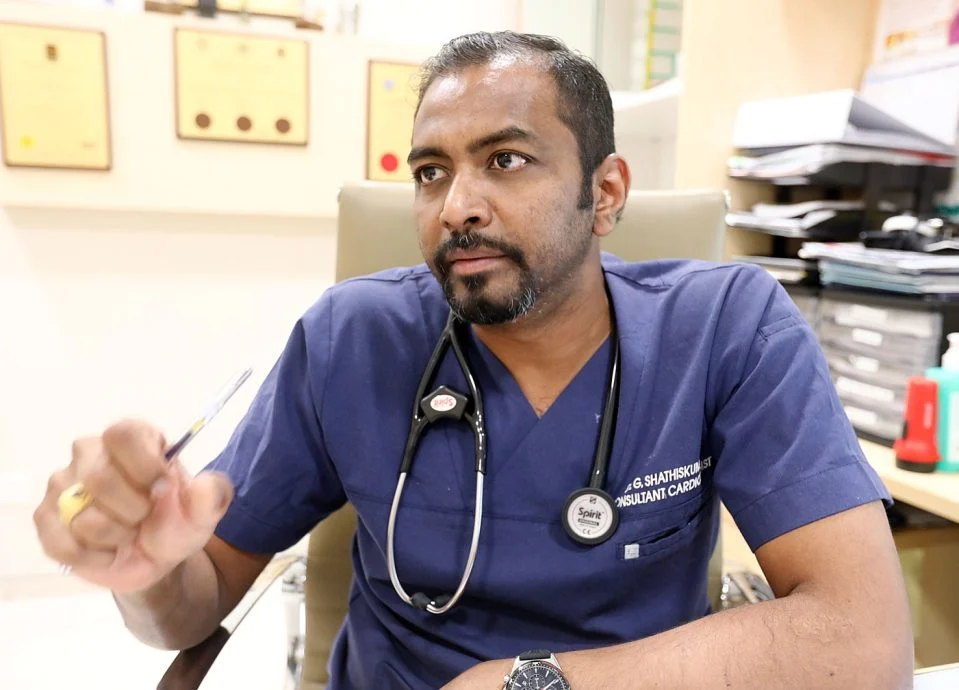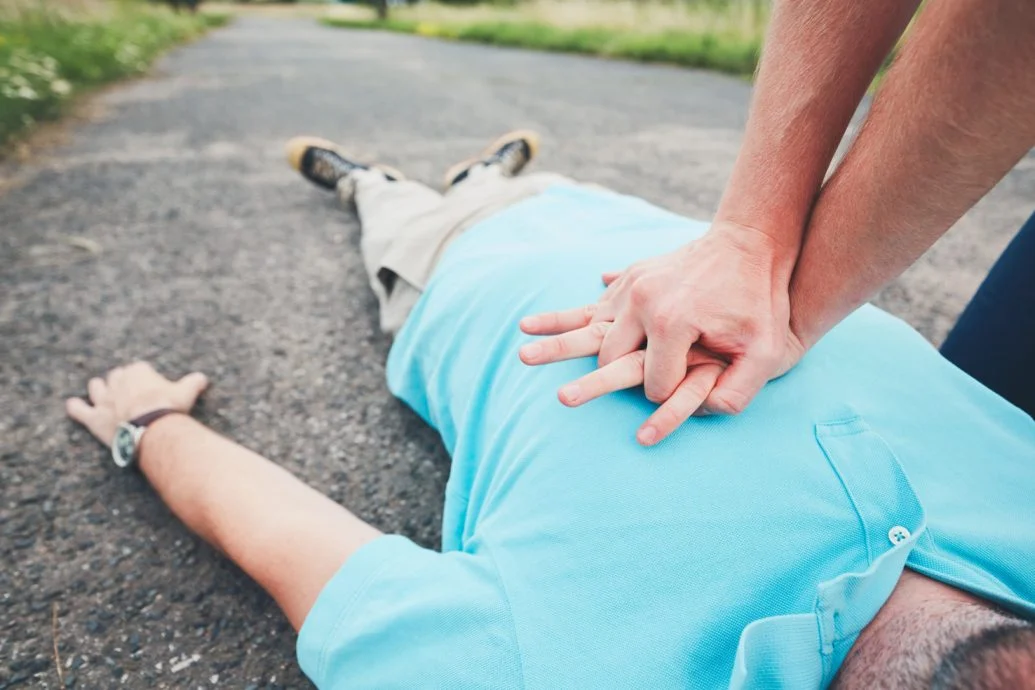We occasionally hear about someone suddenly experiencing "sudden cardiac arrest" (SCA) during exercise and losing their life. While SCA is a common cause of death among athletes, it can also happen to anyone, making it important for the general public to be aware of this condition.
What is Sudden Cardiac Arrest?
Sudden cardiac arrest, also known as cardiac arrest or heart stoppage, occurs when the heart suddenly stops beating, preventing it from effectively pumping blood. This causes blood circulation to cease, leading to a lack of oxygen in the brain, heart, and other organs, which can result in a loss of consciousness, breathing cessation, and potentially death within minutes if not treated promptly.

Causes of Sudden Cardiac Arrest
Dr. Shathiskumar Govindaraju, a cardiologist and internal medicine consultant at Bukit Tinggi Medical Centre, points out that older adults, people with high blood pressure, high cholesterol, or a history of heart disease, and those with a family history of these conditions are at higher risk of sudden cardiac arrest.

He explains that the heart's rhythm is controlled by electrical impulses sent from the sinoatrial node through conduction pathways to stimulate the heart muscles to contract. When this electrical conduction is disrupted due to coronary artery disease, like heart attack, it can lead to arrhythmia, which is the main cause of sudden cardiac arrest. One type of arrhythmia, ventricular fibrillation, is responsible for most cases of SCA. During ventricular fibrillation, the heart quivers rapidly and irregularly, preventing it from effectively pumping blood, which can lead to death if not treated immediately.
Dr. Shathiskumar notes that coronary heart disease patients are at a higher risk of SCA, mainly due to ventricular fibrillation. However, SCA can also occur in young people without coronary heart disease, who have certain genetic heart diseases.
Symptoms of Sudden Cardiac Arrest
According to Dr. Shathiskumar, whether someone is at high risk for SCA often depends on underlying health conditions or unhealthy lifestyle habits. Risk factors include old age, high blood pressure, left ventricular hypertrophy, high cholesterol, high LDL levels, a history of SCA, or a family history of heart disease.
He adds that a rapid heartbeat is an independent factor for SCA. Other risk factors include diabetes, sleep apnea, nutritional imbalances (such as low potassium and magnesium), smoking, and heavy alcohol consumption.
"Diets high in saturated fats, like red meat and high stress levels can all contribute to the risk of coronary artery disease that increase the risk of SCA," he adds.
Sudden Onset Without Warning
Dr. Shathiskumar mentions that before sudden cardiac arrest occurs, a person might experience symptoms such as chest discomfort, pain, or palpitations.
"Most cases of SCA happen without warning, but patients may still notice signs like chest pain, shortness of breath, weakness, headaches, palpitations, or near-fainting. If these symptoms appear, urgent consultation from cardiologist is required.
Performing CPR
Dr. Shathiskumar emphasizes that because SCA is difficult to diagnose before it happens, diagnostic methods are mainly used after a patient has recovered from SCA, not during the event itself. Tests may include blood tests, electrocardiograms, chest X-rays, exercise stress tests, cardiac MRIs, angiogram and angioplasty.

He stresses the importance of restarting the heart as soon as possible to prevent organ damage due to oxygen deprivation, which could lead to death.
"In the event of SCA, CPR and the use of an AED are crucial. If you see someone suddenly collapse and lose consciousness outdoors, immediately call for an ambulance, start CPR, or use a nearby AED until help arrives."
For someone who has survived an episode of SCA, an implantable cardioverter-defibrillator (ICD) might be necessary. This device monitors the heart's rhythm and delivers shocks when dangerous arrhythmias are detected, helping to restore normal heart rhythm.
Key Prevention Measures
Dr. Shathiskumar advises that preventing SCA involves prioritizing health care, including regular health check-ups, especially for high-risk individuals.
He recommends regular blood pressure monitoring, quitting smoking, avoiding excessive alcohol consumption, and maintaining a healthy diet. Regular exercise and keeping a healthy weight are also crucial.
"Training in medical emergency knowledge, promoting first aid education, and improving health literacy are also important steps that relevant authorities should take," he concludes.
Published on Sinchew
Find out more about Dr Shathiskumar Govindaraju: https://bukittinggimedicalcentre.com/doctor-info/dr-shathiskumar-govindaraju





